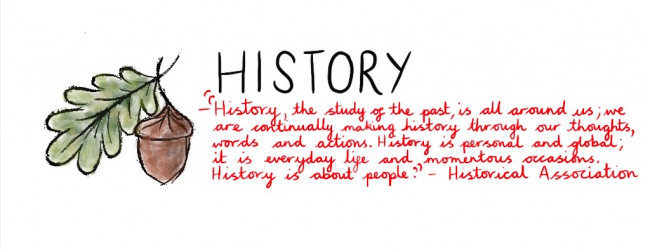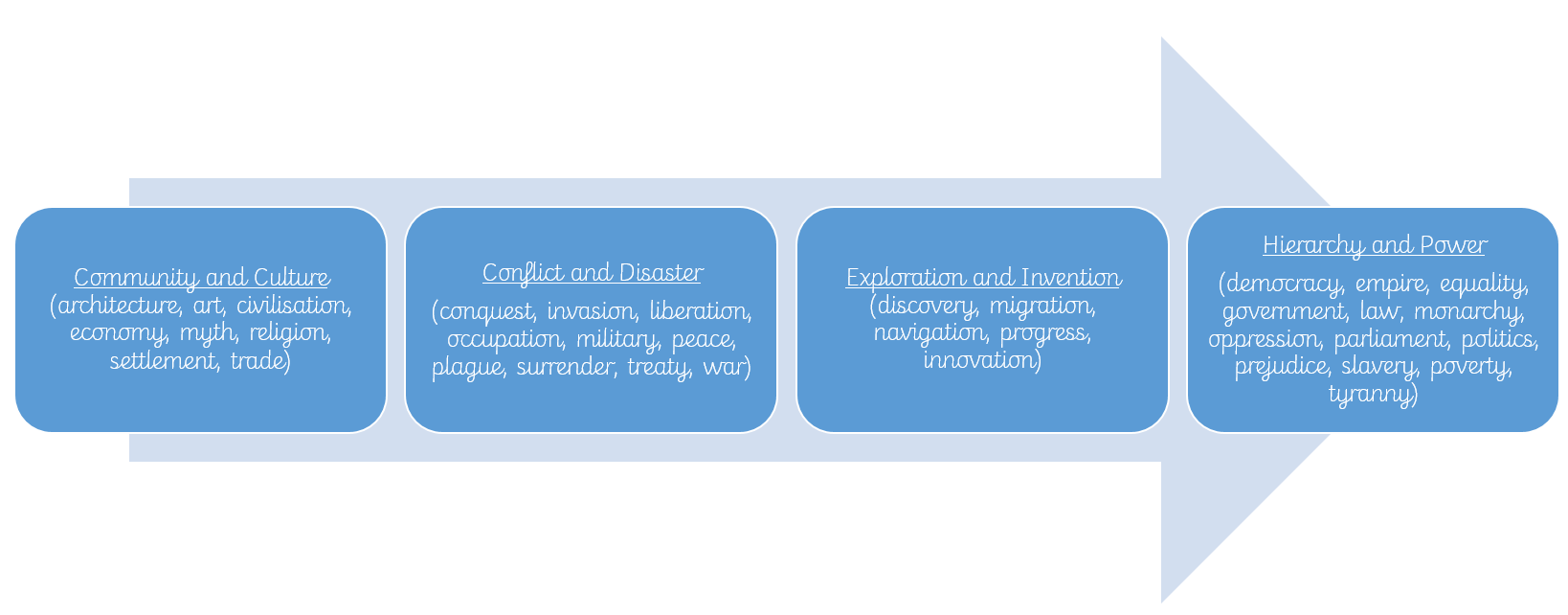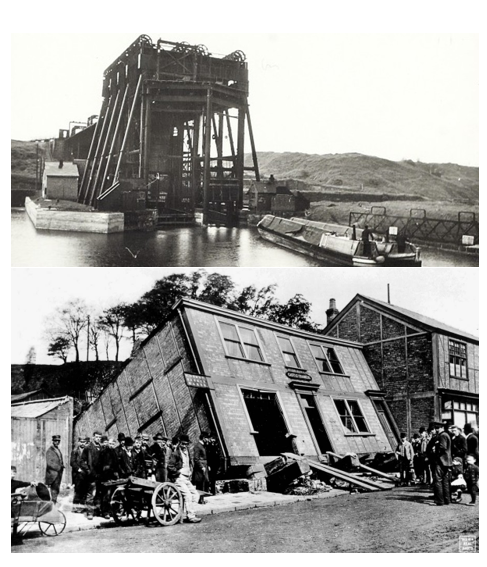History
"History, the study of the past, is all around us; we are continually making history through our thoughts, words and actions. History is personal and global; it is everyday life and momentous occasions. History is about people.
Through our study of the past, we can understand how our own world works. We can also understand how and why things happen to us. For example, had you ever wondered why the polar ice caps are melting? The answer partially lies in history. The Industrial Revolution caused the birth of industrial towns and factories, belching out smoke and pollution. It also caused the mechanisation of society, adding to the pollution. Could this partially explain the pollution problems that we face today? History is not just about the past!" - Historical Association
Intent - What Do We Aspire for Our Children?
Our Curriculum Intent for History
At Cuddington Primary School, our history curriculum is carefully designed to give children a coherent knowledge of British, local and world history. Rich in knowledge, vocabulary and experiences, it is taught in a sequenced, chronological order to develop understanding of historical concepts.
Through enquiry-based learning, children explore valid historical questions, develop the skills of a historian, and gain insight into diverse cultures and perspectives.
Our curriculum fosters curiosity, empathy and respect, enabling pupils to build informed, overarching narratives about the past.
 How History Education starts in the Early Years
How History Education starts in the Early Years
Our Whole School History Curriculum
Implementation - How Will We Deliver the Curriculum?
Knowledge at the Heart of the Curriculum
Learning knowledge is not an endpoint in itself, it is a springboard to learning more knowledge. Each unit in our overview is underpinned by rich, substantive knowledge and ambitious vocabulary, whilst also ensuring children are developing their disciplinary knowledge (historical skills). Each unit of work is planned carefully to ensure concepts are taught in optimal order to support children's understanding. As well as developing a breadth of historical knowledge, we want our children to become skillful historians. Each unit of work has an emphasis on historical enquiry where children investigate historically framed questions whilst also developing historical enquiries of their own. In addition to substantive and disciplinary knowledge, children will develop their experiential knowledge through museum visits, handling artifacts and engaging in carefully planned fieldwork.
Key historical concepts sit at the core of our curriculum to ensure the defining characteristics of the subject are ever-present.

‘Golden Threads’
Our curriculum is refined yearly, but it maintains a consistent knowledge base to ensure conceptual progression. We have identified a set of key historical concepts or ‘golden threads’, that children will repeatedly revisit throughout their time at Cuddington. Our golden threads are: settlement, migration, religion, invention, invasion and societal change. Each unit will not include every 'thread', but over a year, children will visit each one more than once. For example, in Year 4, children will encounter the concepts of invasion, societal change, settlement and invention when studying the Romans. In Year 5, children will revisit the concepts of societal change and invasion as they explore how Britain changed during the Dark Ages when the Anglo-Saxons arrived.

Valuing Our Local Heritage
We believe strongly that children should have a rich understanding of their local heritage. This is why local history is woven into our history curriculum to ensure it is explicitly taught and that links with larger historical themes are made. For example, in Year 3, children learn about the Anderton Boatlift, its purpose, restoration and historical significance. In Year 6, children visit the local war memorial and use it to answer enquiry questions related to the impact of WWI and WWII on the local area. In Year 2, children look at the local heroes such as Emmeline Pankhurst, John Brunner and Robert Verdin.

Linking Curriculum and Pedagogy
We have developed our pedagogy and curriculum to make learning stick. At the heart of our approach is retrieval practice and recapping. Retrieval practice involves deliberately recalling knowledge from memory to make learning more robust and flexible. Each time a memory is retrieved, it is strengthened and less likely to be forgotten. If we wish our curriculum to build over time, then we need to teach in a way that makes knowledge ‘stick’. Units of work refer to learning from previous units to enable children to grapple with historical concepts such as 'continuity and change', and 'similarity and difference'. For example, when studying the Anglo-Saxons in Year 5, children make comparisons between Roman Britain (studied in Year 4) and Anglo-Saxon Britain. Our teaching of history is driven by an enquiry approach that seeks to capitalise on children's curiosity and prior learning. Units of work are structured around an overarching historical enquiry to ensure teaching is focused and children are working towards a clearly defined outcome. The overarching enquiry is often broken down into small sub-enquiries to give children a sense of incremental progression and make learning large chunks of content more manageable.

How do we provide for all learners?
Most pupils enjoy learning about the past, but some struggle with aspects of reading and writing. Pupils are encouraged to work as independently as possible, but reasonable adjustments are made for those pupils with SEND. Teachers aim to make history accessible and engage pupils of all abilities by adapting planning; pre-teaching of vocabulary; live modelling during lessons; where appropriate reducing outcome expectations; providing scaffolding, individual or group support or give additional time to complete tasks.
Teaching History Through Narrative
Humans are a storytelling species. Stories are ‘psychologically privileged’ in the way our memory treats them. Put simply, if we encounter new knowledge within a narrative, we are more likely to retain that knowledge. When possible history units of work will be taught alongside thematically linked texts during English lessons. For example, when studying the Home Front, Year 6 children also study the text ‘Rose Blanche’ and 'Fireweed'. Similarly, Year 3 study the text ‘Egyptology' whilst studying the Ancient Egypt unit. Narratives are also used within history lessons to bring time periods to life. For Example, when studying the Home Front in Year 6, children examine recounts from the text 'Young Voices' by Lyn Smith. Similarly, children in Year 3 read the story of 'Ma'at's Feather.
In addition to using narrative texts, our curriculum is designed in a way that creates ‘curriculum narratives’ or narratives over time. These are historical stories told over longer periods. One of these is the 'story of our island’s history’ For example, by studying units in Year 3, Year 4 and Year 5 children will have an understanding of ‘How life in Britain changed from the Stone Age to the Battle of Hastings’.

Reading Across the Curriculum
In order to develop children's reading skills, our teaching staff plan opportunities for children to independently read age-appropriate texts that link to the history topic being studied, or topics that have been previously studied. We have invested heavily in supporting our history topics with Collins Big Cat titles that enrich the wider curriculum. Whole class reading lessons are also intentionally sequenced to develop children's background knowledge and widen their subject-specific vocabulary. For example, when studying toys through time, Year 1 children read a range of texts linked to toys and games from the past. When studying the Home Front, Year 6 read a range of texts linked to the theme of war. Each year group has at least a half-term each year of whole-class reading aimed at developing historical knowledge.

Curriculum Enrichment
Where possible, every unit of work is enriched by a school trip, or by a visitor coming into school. Trips and visitors are carefully planned to ensure they link with what is happening in the classroom. For example, Year 4 visit the Grosvenor Museum to support their understanding of how the Roman occupation changed Britain. Year 6 visit the local War Memorial when studying the Home Front in WWII. Teachers ensure all pupils are prepared for educational visits. Preparation can include looking at photographs, videos or studying artefacts, so that pupils are not worried about unfamiliar situations.
Impact - How Do We Know Our History Curriculum is Effective?
Pupil Voice
We believe that if children have become knowledgeable historians, then they will be able to articulate their understanding with confidence. This is why pupil voice is an important tool in assessing whether children have made progress. If a child is able to confidently formulate and explain their own responses to an overarching enquiry, then the curriculum and its delivery have been successful.
High-Quality Outcomes
All children work in a humanities book to record their learning throughout an enquiry. Each child will then produce 1-2 high-quality pieces of work for their Curriculum Book. Work in children's Curriculum Book is a culmination of a unit of work. However, we believe that beautiful work takes time. Therefore, children take longer on fewer pieces of work to ensure they can deepen their knowledge and refine their work, taking time to redraft where needed. Below are some examples of our children's high-quality history work featured in their Curriculum Book. Our history curriculum is also celebrated through displays throughout the school.


 01270360030
01270360030 



